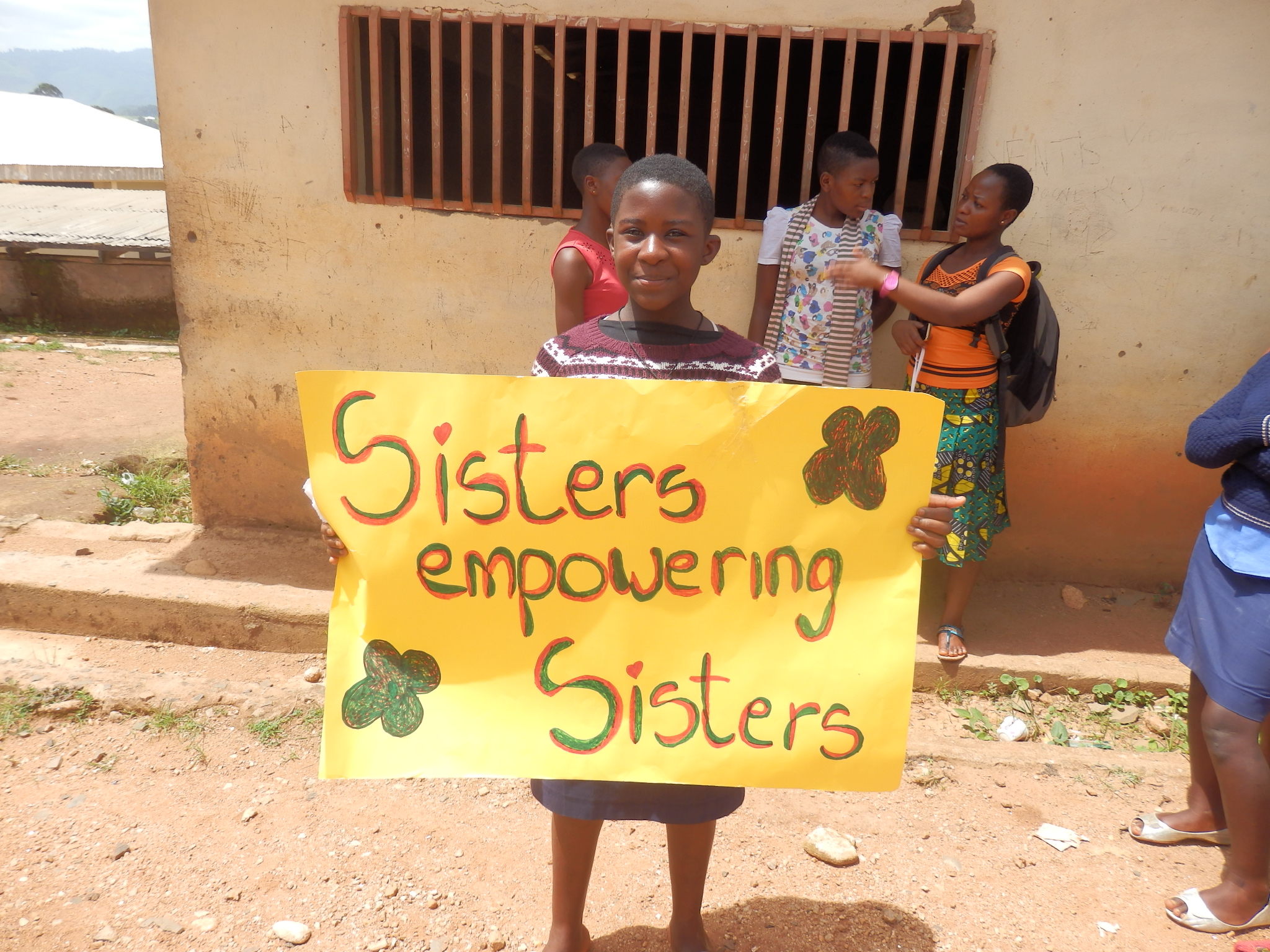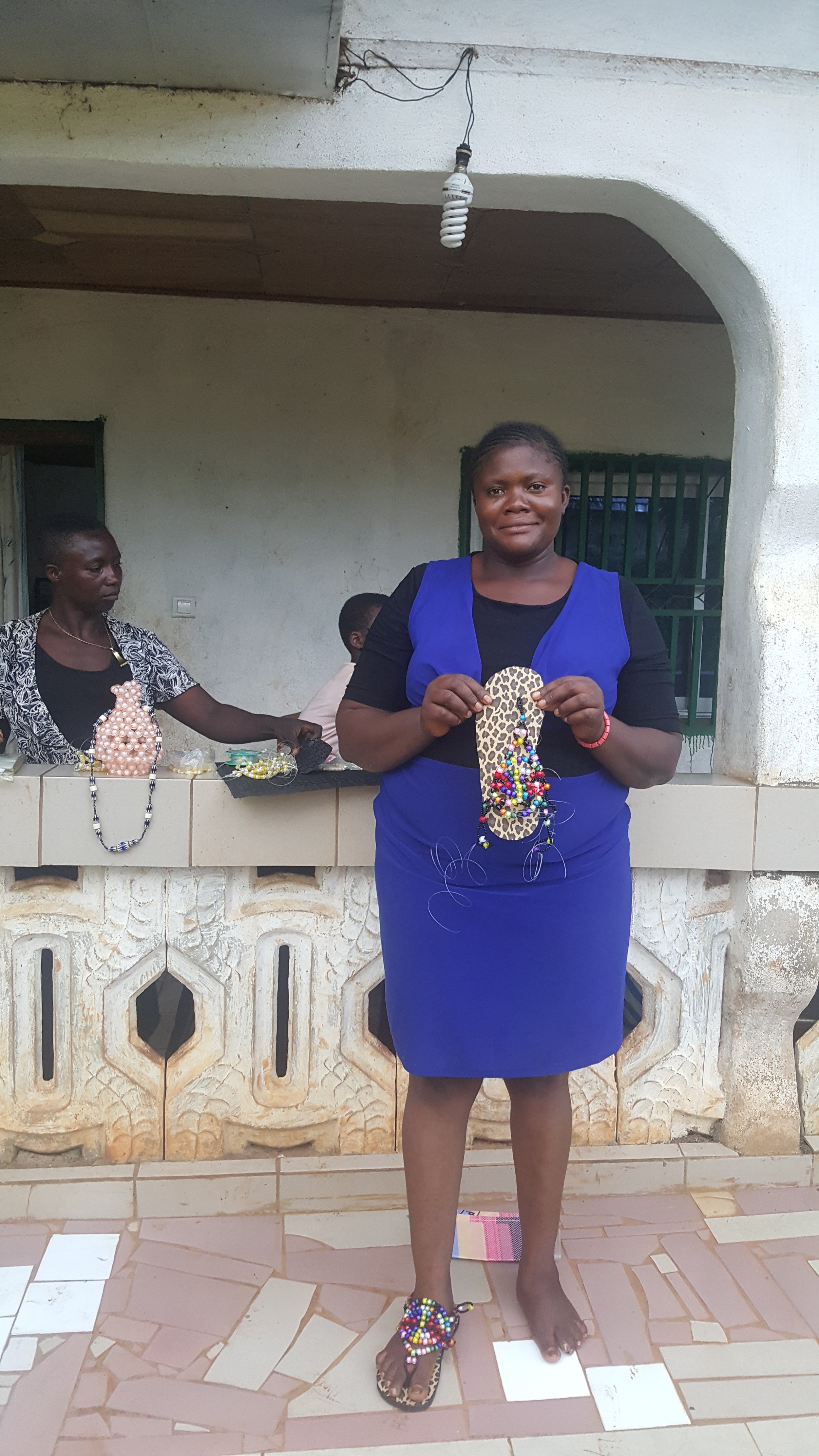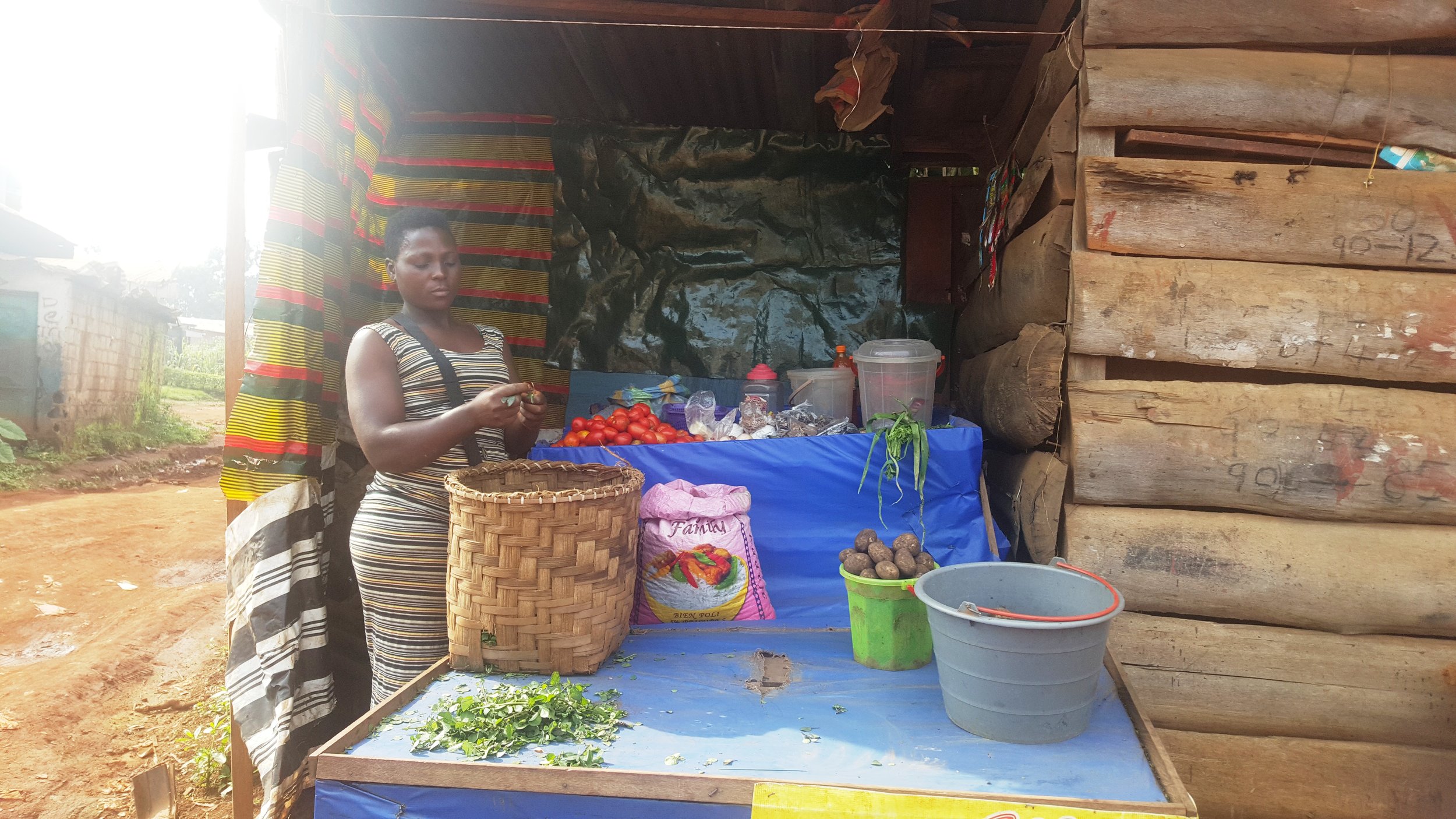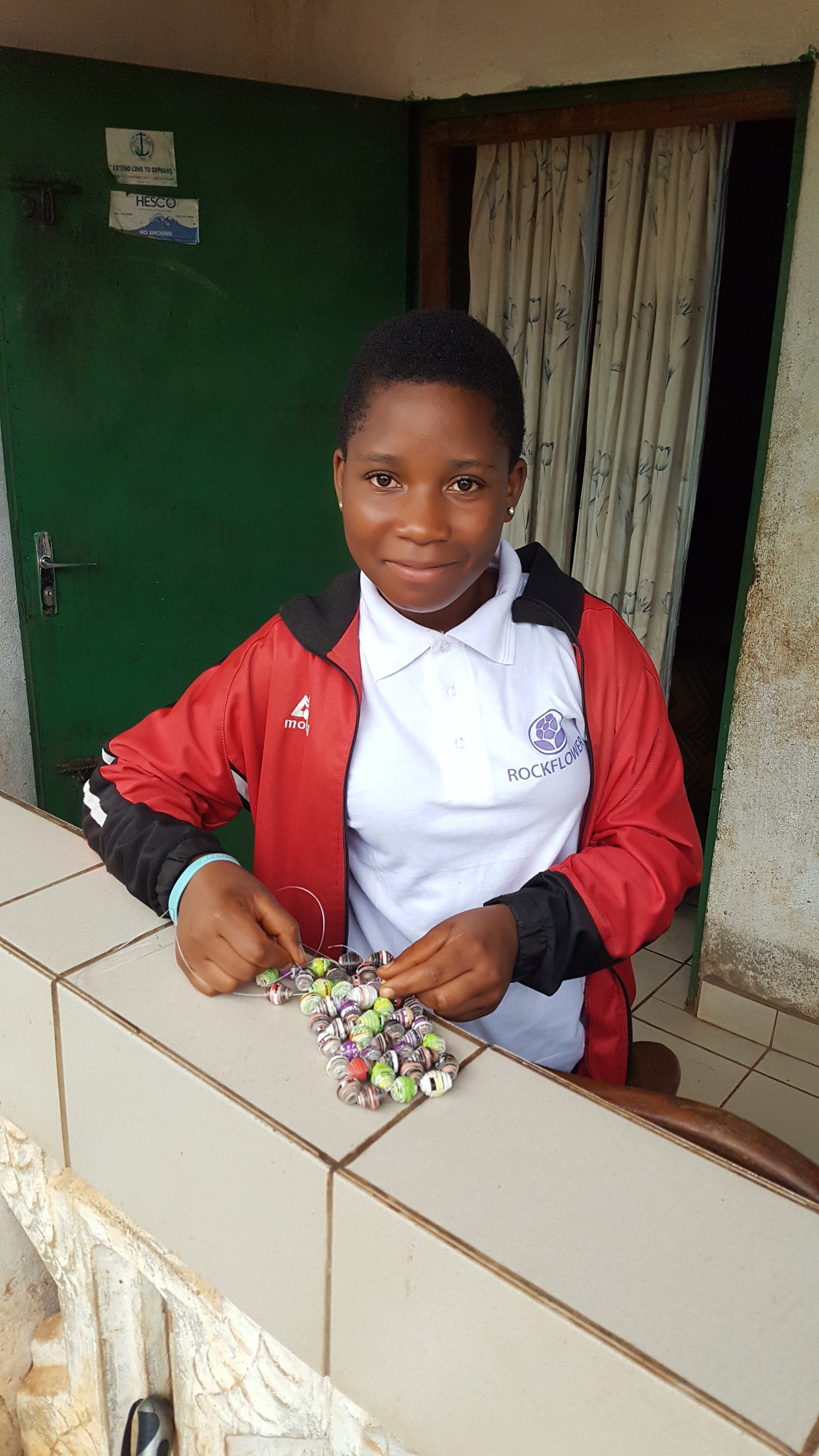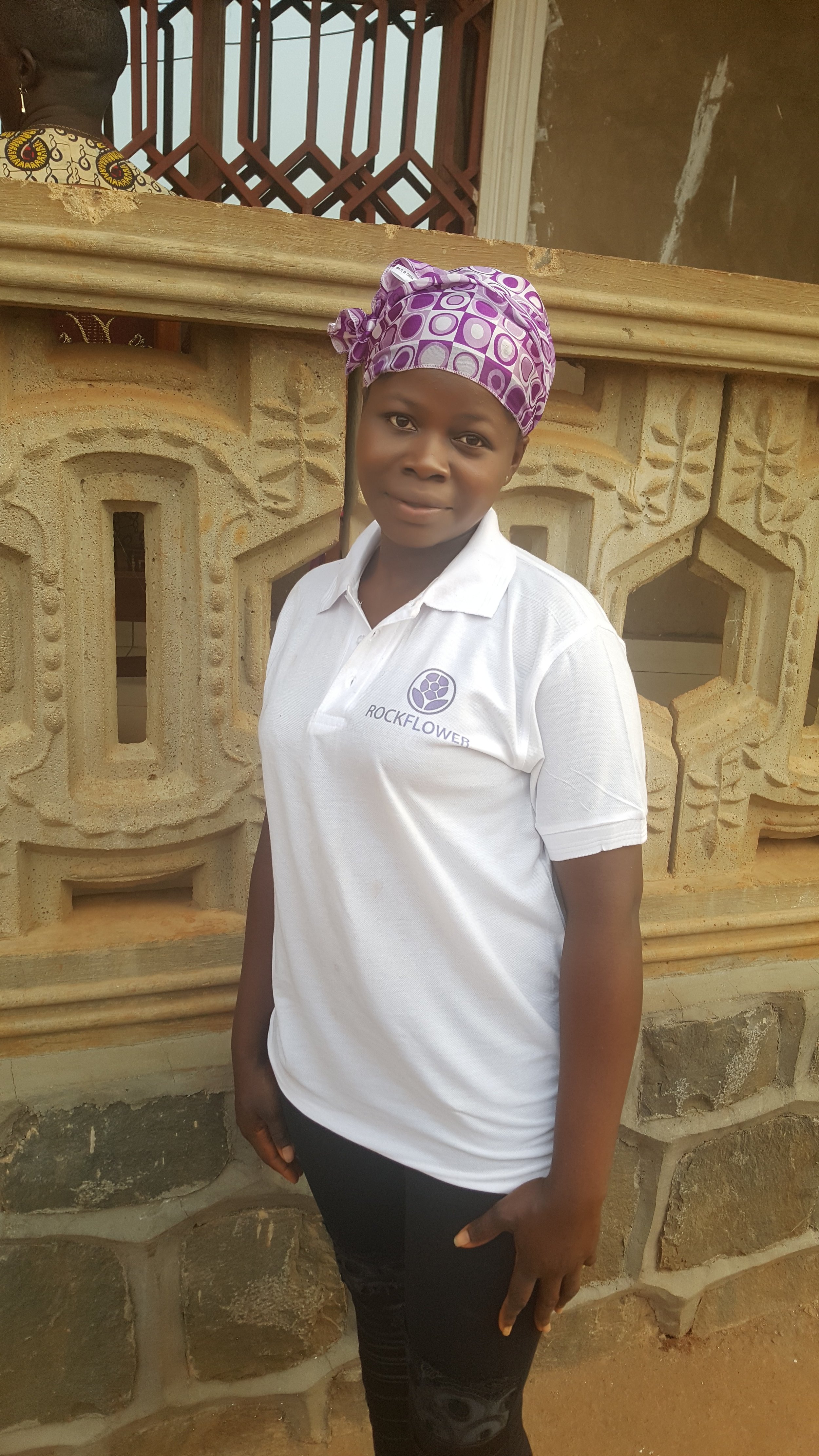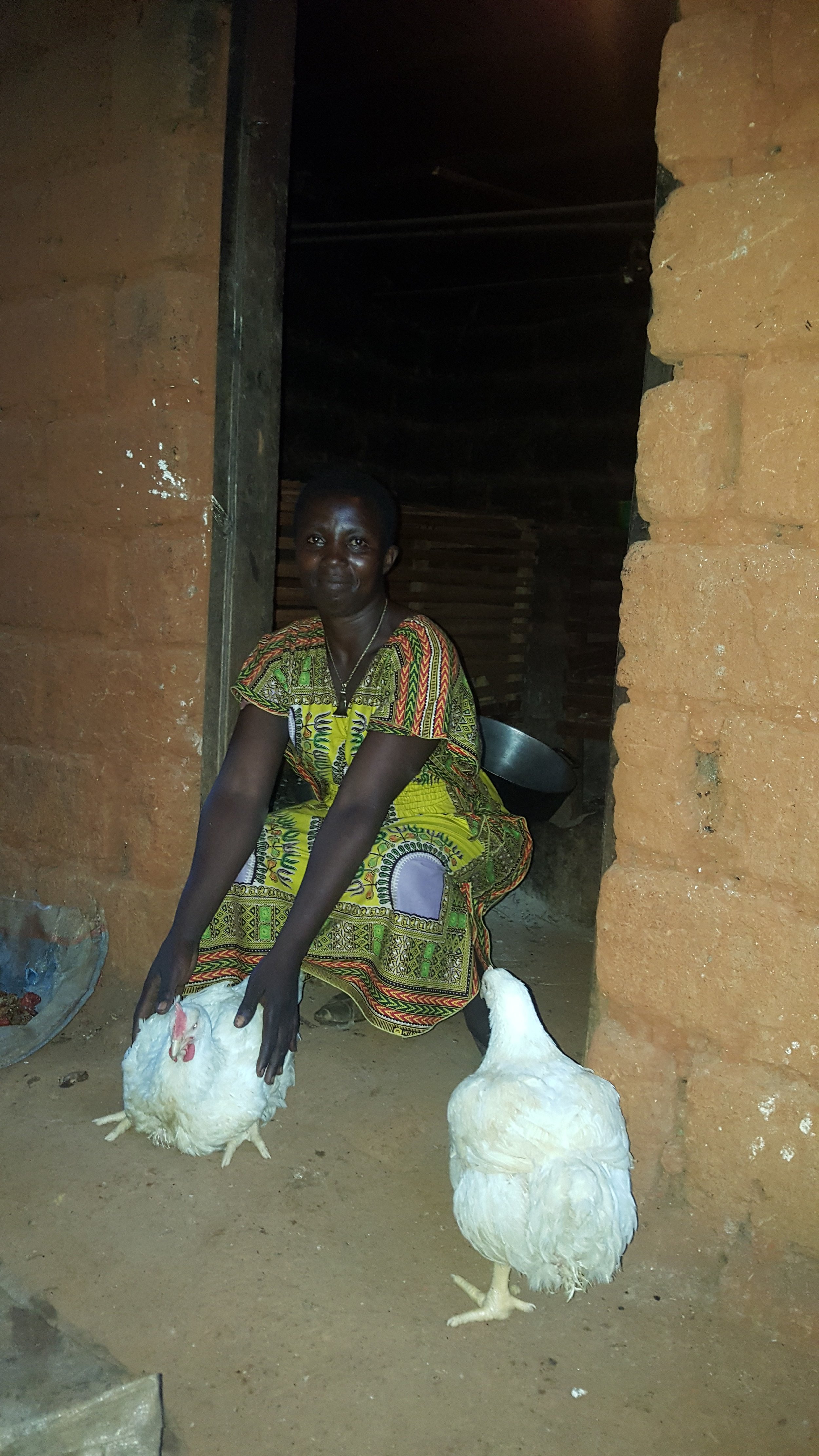The long standing partnership between African Youth Alliance and Rockflower stands as a testament to the transformative power of focused efforts. Through establishing the multi-year Five Keys in Five Villages project, targeted progress-driven initiatives are creating a brighter future for women and girls in rural Cameroon.
Over the past year, African Youth Alliance has achieved significant milestones in their mission to improve the lives of women and girls in Cameroon through community collaboration. Their recent progress report showcases the remarkable work they have done this year across the five key pillars despite the challenges they faced.
Promoting Peace and Security
AYA facilitated interactive sessions around peace and security, which involved members of local government and focused on finding ways to disseminate valuable and often taboo information at the family level. Challenges arose as some women hesitated to participate due to concerns about family safety. However, health talks addressing Sexual and Reproductive Health and Rights (SRHR), particularly concerning HIV/AIDS, were conducted in collaboration with a community nurse to create a safe space to discuss these topics. The organization also held meaningful discussions around girls' rights by tackling issues like early child marriage and teenage pregnancy.
Maternal and Reproductive Health Advocacy
AYA engaged community nurses, field staff, and trainers to address critical matters regarding MRH. Educational sessions on SRHR, HIV/STIs, family planning, and the consequences of early marriage were conducted. The organization succeeded in creating a safe space for women to speak freely and ask important questions. Additionally, the provision of reusable sanitary pads during Menstrual Hygiene Management (MHM) gatherings was a milestone in supporting women's health and hygiene. Trainings were also held around rash ointment and Vaseline production which added a practical dimension to maintaining family well-being.
Access to Food and Water
A great deal of progress was made in this area through farm work, seed donations, and organic farming training. Despite hurdles such as increased commodity prices and network failures, the AYA’s dedication led to improved crop productivity, ensuring food security and enhanced living standards for both families and the community. Strikingly, amidst a road blockade caused by armed groups, the donation of cabbage, beans, and potatoes seeds proved life-saving, ensuring sustenance for families.
Empowering Through Education
Through trainings, peer mentoring, and coaching, AYA enabled young girls to become active in their communities and gain skills to further their careers. Sessions on Gender-Based Violence (GBV) and the negative consequences of early marriage encouraged girls to maintain independence and make smart choices. Development workshops held on topics like paper bead production, making lotion, and powdered soap provided opportunities to create their own businesses.
Fostering Economic Empowerment
This year, AYA focused on helping small business owners to grow their businesses. They provided financial literacy training, and enabled group members to expand their business offerings. Their revolving loan scheme provided critical funding to these small businesses and continues to grow and improve the local economy. Through these efforts, the organization contributed to increased economic independence and self-sufficiency.
As this partnership looks to the future, African Youth Alliance envisions a continued journey of progress and growth. Their plans include establishing an adult literacy school to address educational gaps, harnessing solar energy for improved communication, and expanding skill development opportunities in areas like sewing, hairdressing, and bead designing. The organization's unwavering commitment to engaging men in crucial programs and amplifying the voices of women and girls reflects their holistic approach to sustainable change.
The collaboration between African Youth Alliance and Rockflower stands as a testament to the transformative power of focused efforts. Through progress-driven initiatives, they are creating a brighter future for women and girls in Cameroon, exemplifying the impact of the five keys.













